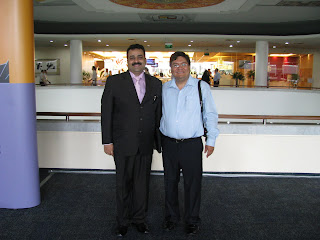Achim Steiner on Climate Change

Achim Steiner on Climate Change Achim Steiner, executive director of the United Nations Environment Program, spoke to Christian Schwägerl of SPIEGEL about the current state of global climate negotiations ahead of the UN conference in Durban, South Africa. Achim Steiner’s views are summed up below. If emissions aren't soon uncoupled from economic growth, the earth will warm to a state that will threaten our prosperity. That's exactly why climate policy is neither futile nor defeated. On the contrary, it's obviously just at the beginning. Flood disasters like the one that recently occurred in Thailand must not become routine. Anyone who dismisses the risk of climate change today does so out of deficient scientific understanding or very shortsighted economic interests. New findings show that climate researchers have more likely underestimated than overestimated the speed and magnitude of the changes. It's not true that climate protection measures would make energy











